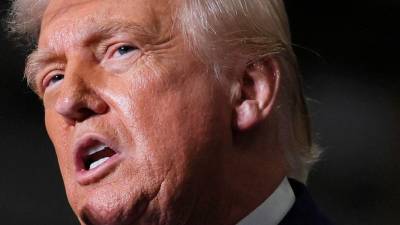BRUSSELS: The European Union has proposed moving its ban on Russian gas imports forward by one year as part of new sanctions designed to weaken Moscow’s war funding and satisfy US President Donald Trump.
This 19th package of EU sanctions since Russia’s 2022 invasion of Ukraine also targets companies, banks, and traders in China and India accused of helping Moscow circumvent existing restrictions.
The European Commission aims to phase out liquefied natural gas purchases from Russia by January 2027 under the proposal, which requires approval from all 27 member states.
Ukrainian President Volodymyr Zelensky praised the robust package as an important step that will intensify pressure on Russia’s war machine and have a tangible impact.
European Commission chief Ursula von der Leyen stated that Russia’s war economy is sustained by revenues from fossil fuels and emphasized the need to cut these revenues by turning off the tap.
The new sanctions come as the United States pressures the EU to end fossil fuel imports from Russia while the bloc seeks to convince Trump to take a stronger stance against Moscow.
The US leader has so far refrained from increasing pressure on Russian President Vladimir Putin but recently indicated willingness to do so if allies stopped buying Russian oil and imposed tariffs on China.
The EU has already banned most Russian oil through previous sanctions, reducing its import share from 29% in early 2021 to just 2% by mid-2025.
Only Hungary and Slovakia, both friendly toward Moscow and Trump, continue purchasing Russian oil.
EU foreign policy chief Kaja Kallas announced that Brussels is accelerating its previous pledge to end all Russian LNG imports by moving the deadline from end-2027 to end-2026.
She stated that Moscow thinks it can continue its war but the EU is ensuring it pays the price for its actions.
Zelensky expressed gratitude for the EU’s leadership and unity while calling for swift adoption of the 19th package and expecting other partners to mirror and expand these steps.
Despite efforts to end decades of dependency, Russia still supplied 19% of the EU’s gas in 2024 compared to 45% before the war, partly due to increased LNG purchases offsetting reduced pipeline imports.
Last year, 32 billion cubic metres of gas entered Europe via the TurkStream pipeline while 20 billion cubic metres arrived through LNG shipments.
The EU has imposed 18 rounds of sanctions despite opposition from some member states, particularly Hungary and Slovakia.
Von der Leyen stated that the latest package targets those who fuel Russia’s war by purchasing oil in breach of sanctions, including refineries, oil traders, and petrochemical companies in third countries such as China.
Brussels also intends to target crypto platforms and Russia’s MIR credit card system, created to avoid reliance on US-based networks.
The package seeks to blacklist 118 more vessels in Russia’s shadow fleet of ageing tankers used to circumvent oil export curbs and 45 firms accused of supporting Russia’s military-industrial complex.
Entities from Russia, China, and India would face export bans and tighter controls according to Kallas.
While seen as an attempt to meet Trump halfway, these measures fall short of his request for allies to impose up to 100% tariffs on Beijing and New Delhi.
This was expected since Brussels generally avoids tariffs and is currently negotiating a trade pact with India while having no appetite for a broader trade war with China.
Some diplomats critically noted that US demands for European action coincide with American commercial interests while allowing Trump room to continue stalling on taking a tough stance against Russia himself.
The United States, as the world’s top oil producer, is the largest supplier of LNG to Europe, accounting for almost 45% of total imports.
Most LNG enters through terminals in France, Spain, Italy, the Netherlands, and Belgium, though it remains difficult to determine how much is consumed locally versus transiting to other nations. – AFP
